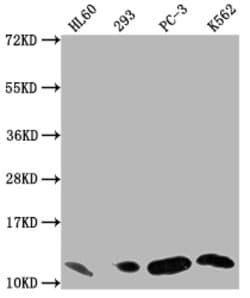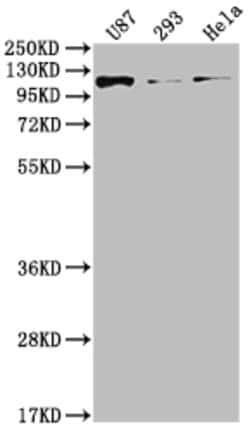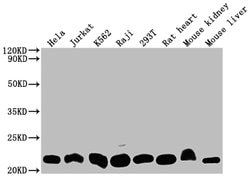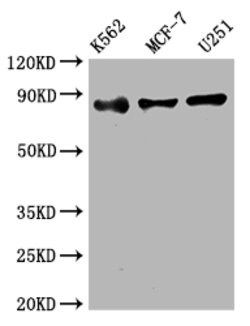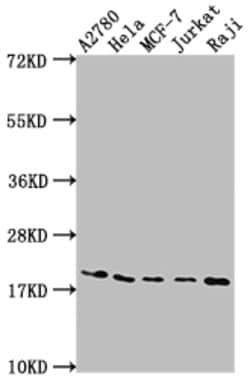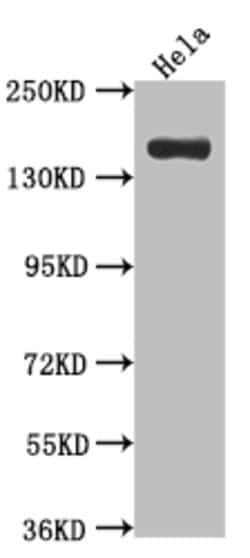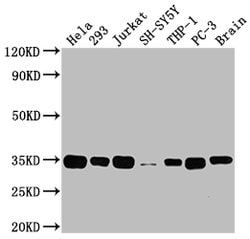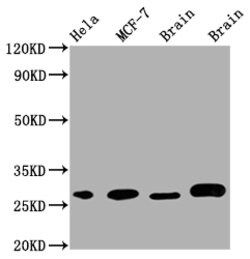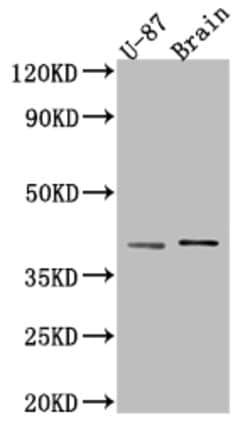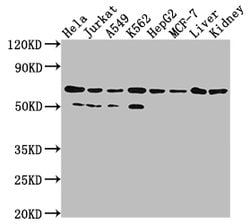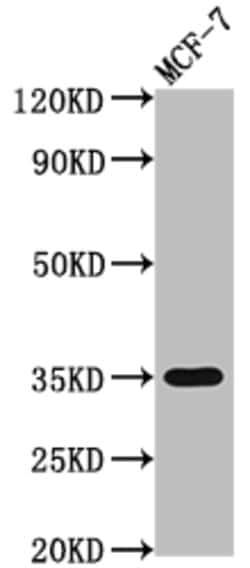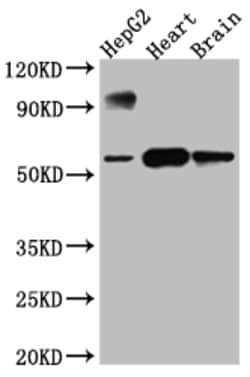NGF Recombinant Rabbit Monoclonal Antibody (5F10), Invitrogen™
Manufacturer: Thermo Scientific
Select a Size
| Pack Size | SKU | Availability | Price |
|---|---|---|---|
| Each of 1 | PIMA538347-Each-of-1 | In Stock | ₹ 53,667.00 |
PIMA538347 - Each of 1
In Stock
Quantity
1
Base Price: ₹ 53,667.00
GST (18%): ₹ 9,660.06
Total Price: ₹ 63,327.06
Antigen
NGF
Classification
Recombinant Monoclonal
Concentration
3 mg/mL
Formulation
PBS with 150mM NaCl, 50% glycerol and 0.02% sodium azide; pH 7.4
Gene Accession No.
P01138, P25427
Gene Symbols
NGF
Immunogen
A synthesized peptide derived from human NGF
Quantity
100 μL
Primary or Secondary
Primary
Target Species
Human, Rat
Product Type
Antibody
Isotype
IgG
Applications
Immunohistochemistry (Paraffin), Western Blot
Clone
5F10
Conjugate
Unconjugated
Gene
NGF
Gene Alias
B nerve growth factor; beta ngf; beta-nerve growth factor; BetaNGF; beta-NGF; bNGF; b-NGF; HSAN5; MGC161426; MGC161428; nerve growth factor; nerve growth factor (beta polypeptide); nerve growth factor, beta; nerve growth factor, beta polypeptide; nerve growth factor, beta subunit; NGF; NGF b; NGF β; Ngfb; NGFbeta; NGFβ; β nerve growth factor; β NGF; βNGF
Host Species
Rabbit
Purification Method
Affinity chromatography
Regulatory Status
RUO
Gene ID (Entrez)
310738, 4803
Content And Storage
-20°C or -80°C if preferred
Form
Liquid
Description
- This antibody has been tested in direct-ELISA Nerve growth factor (NGF) influences the survival and differentiation of a variety of neuronal and nonneuronal cells
- The actions of this polypeptide result from binding to specific cell surface receptors which are present as both high and low affinity sites
- Although both types of receptor bind NGF only the high affinity form is capable of signal transduction
- Cross-linking studies with 125I-NGF have shown that the high affinity receptor of rat PC12 cells forms an Mr 158,000 complex with NGF while the low affinity receptor forms an Mr 100,000 complex
- Full length cDNA clones for both the human and rat NGF receptor genes have been produced and sequenced, revealing greater than 90% homology between the two species
- NGF exhibits nerve growth stimulating activity and is involved in the regulation of growth and the differentiation of sympathetic and certain sensory neurons
- Further, NGF stimulates division and differentiation of sympathetic and embryonic sensory neurons
- Mutations in the NGF gene have been associated with hereditary sensory and autonomic neuropathy, type 5 (HSAN5), and dysregulation of NGF gene expression is associated with allergic rhinitis.
